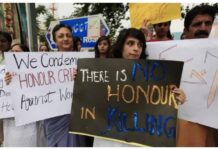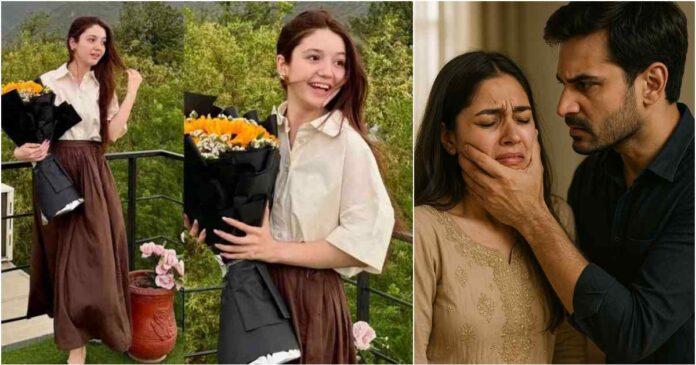In an ideal world, “no” is a complete sentence. It is a boundary, a right, a final word. But in Pakistani dramas, that “no” is too often rewritten. It is reimagined as an invitation to persist, an opening for obsession, or a prelude to romance.
She is saying no? Oh, try harder, because Danish Taimoor was doing it too. She is resisting? Remember how Feroze Khan got his way by getting aggressive.
And then in the real world, a woman’s “no” frequently becomes her death sentence.
Entertainment Becomes Enabling
The brutal murder of Sana Yousaf is a major example of the impact these dramas have in real life. The 17-year-old MINOR from Islamabad was shot by 22-year-old Umar Hayat for rejecting his marriage proposal. That too in her own house.
Her crime? Refusal. Her Punishment? Death.
This is not a standalone incident. It is a symptom of a deep, cultural disease, one that our drama industry helps feed daily. It’s a systematic glorification of male insecurity.
Her life was cut short because someone could not take “no” for an answer. And disturbingly, this inability to accept rejection is a narrative we continuously normalise on screen.

Romanticism of Stalking and Abuse
Pakistani dramas are saturated with stories that confuse harassment with affection.
Men who stalk women, pressurise them, break their trust, or force themselves into their lives are often glamorised as “passionate lovers.” The woman says “no,” but he persists.
She rejects him, but he waits outside her college. She disapproves, but he slaps her, and somehow, this is framed as intense love. By the final episode, she falls for him, and the message is clear: persistence pays off, and her “no” was never really serious.
What these narratives fail to show is that, in reality, the man doesn’t just wait. He threatens. He harasses. He harms. Sometimes, he kills.

Media and Its Power For Normalisation
The link between media portrayal and real-life attitudes isn’t imaginary.
Numerous studies have shown that repeated exposure to media that romanticises abuse or manipulation can desensitise audiences, particularly young viewers, to toxic behaviours.
When a man slaps a woman in a drama and later marries her in a supposed happy ending, what message does that send to impressionable minds? That violence is forgivable if it comes from love? That boundaries are made to be broken?
The entertainment industry wields enormous influence in shaping societal norms. Yet instead of challenging misogyny, many dramas reinforce it.
We don’t need more stories where men pursue women relentlessly until they give in. We need stories where “no” is heard, understood and respected. Where love is not measured by control or aggression but by mutual respect.
Sana’s voice has been silenced forever, but the message must echo louder than ever:
“No” means no. Not later, not maybe, not ever.
Stay tuned to Brandsynario for the latest news and updates.







































